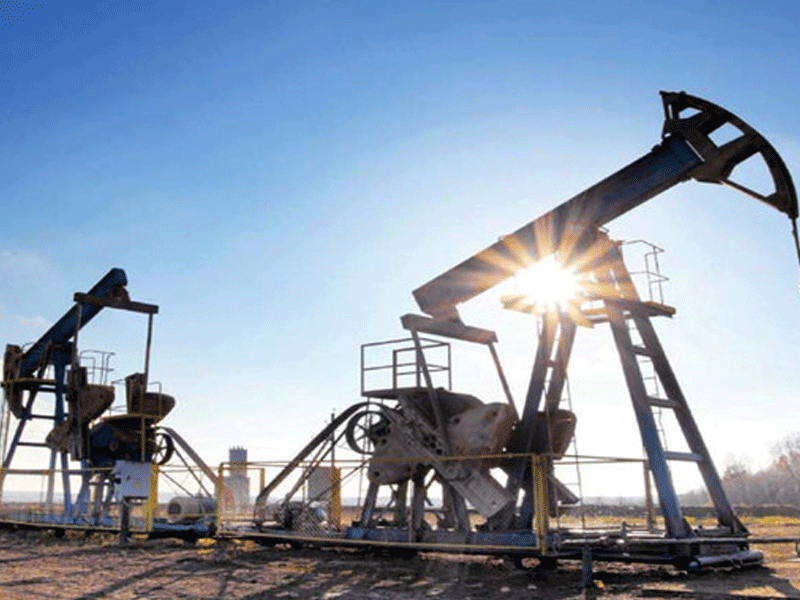No relief in sight

- 154
- 0
The energy crisis in Pakistan is getting worse. Sui Northern Gas has asked for a third hike in gas prices in a year. Its prices are being hiked by 155 percent from July 1.
Prime Minister Shehbaz Sharif has expressed his anger on this and has asked for a forensic audit of the recent increase in prices, a report on infrastructure, gas theft and poor performance in three months.
In view of these conditions, the importance of Pak-Iran gas project has doubled. The Prime Minister has also directed to immediately set up an international ministerial commission to monitor the project.
Petroleum Minister Mossadiq Malik also expressed his concerns and said that as the value of the dollar has decreased, more companies are asking for an increase.
The revolving credit in the energy sector has reached 5 thousand billion rupees. He said that the government has decided to seek exemption from the US on the Pakistan-Iran gas pipeline project. Pakistan cannot afford sanctions. We will put our position in front of America. We will try to get exemption by giving full lobbying and political and technical arguments.
He said that we have told Iran several times that we need your gas.
We want to complete this project without any restrictions. We will also request relaxation so that this project can be completed. Construction can start soon.
It is true that there is a lot of inflation in the country, cheap gas is our compulsion, Pakistan has a big advantage in buying gas from Iran, but the facts on the ground are that we cannot anger America in the current situation, but we can convince it.
The caretaker government had approved the construction of the line but had delayed plans to file a petition against US sanctions due to the geopolitical situation. This project has been pending since 2009.
Meanwhile, financial experts say that Prime Minister Shehbaz Sharif's expression of indignation over the recent increase in gas price is natural. When gas deposits were discovered at Sui in the early years of Pakistan's formation, gas was seen as a cheap fuel. It was believed that these reserves would be enough for the needs of the country for decades. But at that time the population of the country was small and perhaps the estimators did not have a correct estimate of the extraordinary increase in the population.
At present, the situation is that the country's gas reserves are scarce, the amount of newly discovered gas is less, while the dependence is more on the import of gas from abroad. A plan to send gas through a pipeline is on hold due to the situation in Afghanistan, while the US sanctions have blocked the Pak-Iran gas pipeline.
Containerized gas is no longer available at the old cheap rates. This requires serious foreign exchange. The terms of the hike in electricity and gas rates by the IMF have been relaxed.
In this scenario, gas prices have skyrocketed and have increased by hundreds of percent over several months. A rate hike request by Sui Northern Gas is also pending before the Oil and Regulatory Authority (OGRA).
In this situation, the Prime Minister has decided to review the performance of Ogra and gas companies. According to the sources, a forensic report has been called for the recent increase in gas prices in a month.
It has also asked for a report on gas infrastructure, gas theft and poor performance in 3 months and has directed to immediately set up an inter-ministerial commission to monitor the Pak-Iran gas pipeline project.
It is expected that these steps will lead to improvement in the situation.
The completion of the contracts with Turkmenistan and Iran for many years can provide consumers with cheap gas.
To deal with the energy crisis that has been going on for more or less two decades, Pakistan has started plans to get natural gas from Turkmenistan and Iran through a pipeline, which should have been completed by now.
Both have been delayed for a long time due to tension. If they were completed in time, not only gas would be available 24 hours a day, but domestic and foreign industrial production and commercial activities would continue without interruption.
Pakistan has approved the completion of the Iran project in two phases. In the first phase, an 81 km long pipeline will be laid from the Iranian border to Gwadar.
If the US does not impose any restrictions, it will be extended from Gwadar to Nawabshah. While if the ban is maintained, Pakistan will have a reasonable justification to abandon the project.
In this way, it will avoid a fine of 18 billion dollars and the proceedings of the International Court of Arbitration. It should be clear that Iran has extended the deadline of 180 days to September 2024 to Pakistan to complete the project, otherwise it will take legal action.
It is commendable that Iran has also offered its legal and technical expertise to Pakistan under which Iran will provide practical assistance in the completion of the project.
America should realize the ground realities related to Pakistan's energy crisis, that in these conditions, the population of 25 crores is facing various problems, most of whom do not even have the ability to use alternative sources of fuel.
Published in The Daily National Courier, March, 29 2024
Like Business on Facebook, follow @DailyNCourier on Twitter to stay informed and join in the conversation.

















































